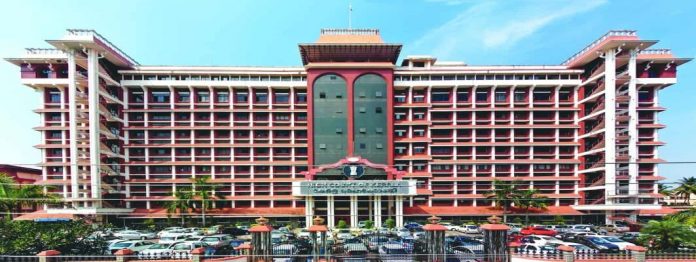In a recent judgment, the Kerala High Court has held that marrying the victim is no ground to quash rape proceedings against an accused, especially when the offence attracts the provisions of POCSO Act.
A single-judge bench of Justice Shircy V held the compromise and settlement entered between the parties, does not mean a case of POCSO is not made out against the accused and, hence, the court refused to quash the proceeding and stated:
”It is made clear that the petitioners have to stand the test of judicial scrutiny and thus face trial before the trial court.”
Facts:
The petitioners, Rahul P.R. and Virjin, are the accused in offences punishable under Sections 366A (Procuration of minor girl), 376 (Punishment for sexual assault) and 34 (Acts done by several persons in furtherance of common intention)of Indian Penal Code and Section 4 (Penetrative sexual assault) read with Section 3 (Punishment for penetrative sexual assault), Section 6 (Punishment for aggravated penetrative sexual assault) read with Section 5 (Aggravated penetrative sexual assault) and Section 17 (Punishment for abetment) read with Section 16 (Abetment of an offence) of the Protection of Children from Sexual Offences Act, 2002.
On March 23, 2017 at 12:30 pm, the petitioners allegedly procured the victim and took her forcibly to the rental house of Virjin and Rahul and allegedly raped her.
Advocate P.S. Chacko appearing for the petitioners/accused had submitted that his clients had not committed any offence as alleged by the prosecution and the entire matter had been settled between the parties and the victim does not intend to proceed with the case against the petitioners.
He further submitted an affidavit has also been sworn by the victim stating that Rahul has married her under the Special Marriage Act on December 8, 2020 and now they are living together as husband and wife.
‘The psychic effect and impact would cause a devastating effect on the minor’
“Rape is a very serious offence and it is doubtless that it is not an offence of private in nature but is also an offence towards society. It is worse than murder as humiliating and horrifying experience are caused to the victim and so it is considered as the most heinous, brutal and cruel crime against a woman. When it is towards a child, the gravity is all the more severe and excruciating as it may even low self-esteem, self-confidence and dignity of the child and that the psychic effect and impact would cause a devastating effect on the minor and result in far-reaching consequences,” the court said.
The Court held that when the magnitude of the crime is so grave and heinous as such to shock the sense of justice, settlement between the parties and a marriage subsequently between them are not matters for consideration to quash the proceedings in a criminal case.
“Rape is not only a very serious and inhumane offence committed towards the victim alone, but also it causes very serious impact upon her relatives and the society as a whole,” the Court said.
Hence, the court concluded that the petitioners have to stand the test of judicial scrutiny and face trial before the trial court.
Rahul-PR-and-Anr-v-State-of-Kerala

